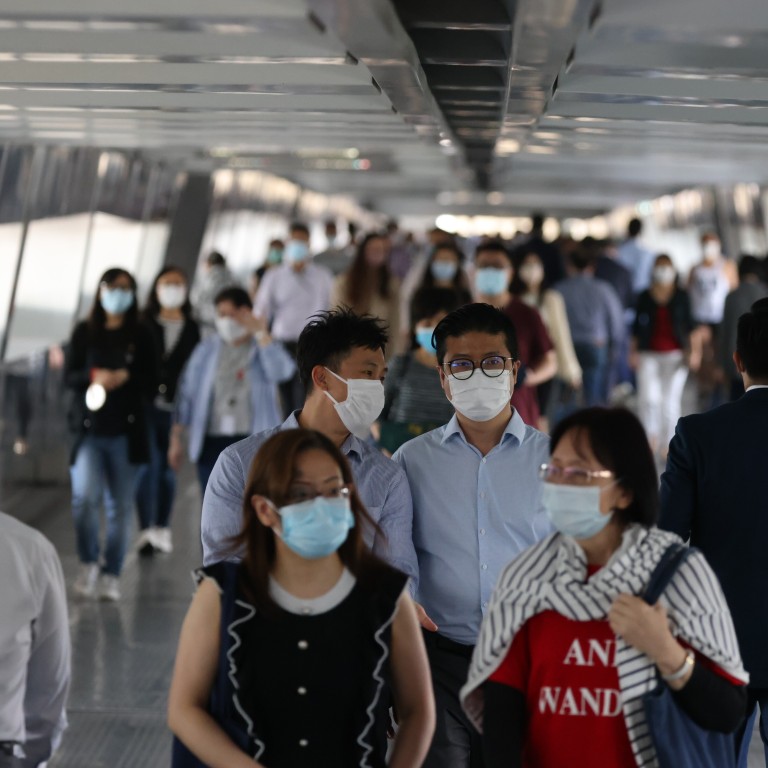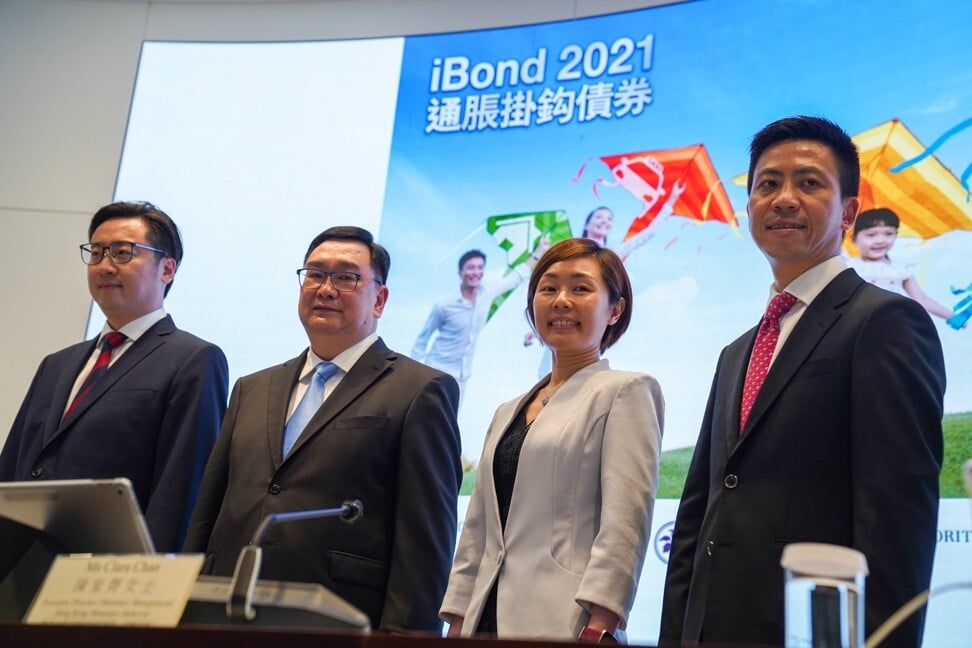
Hong Kong to raise up to HK$20 billion (US$2.6 billion) in latest round of iBonds
- Subscriptions for the eighth series of inflation-linked government debt to open on June 1, close on June 11
- iBonds will pay a minimum interest rate of 2 per cent every six months
The iBonds, the eighth series issued since 2011, will make an interest payment every six months based on the average rate of the consumer price index over that half-year period, with a guaranteed minimum payment of 2 per cent.
In its latest offering, the city’s government plans to issue HK$15 billion worth of bonds, but could increase that to HK$20 billion depending on popularity, making it the biggest iBond offering to date, according to Clara Chan, the HKMA’s executive director for monetary management.

01:52
‘Vaccine bubble’ allowing Hong Kong bars and party rooms to reopen leaves many confused
“iBonds provide a safe and attractive investment option to the public,” Chan said at a press conference on Wednesday. “No matter how inflation goes and what level it is, the principal will be paid in full at maturity.”
Hong Kong officials opted to set the minimum guaranteed rate at a higher level for iBonds issued in November and the current batch to encourage participation in the bond market and provide stable returns to investors as low interest rates are expected to persist for some time.

The first interest payment on the new iBonds will be due on December 23.
Cheuk Wong, HSBC’s head of greater China fixed income, said the market sees inflation continuing to rise in Hong Kong this year, in part because of improving economic outlooks in China and the United States.
“Since the two big economies are showing positive signs, Hong Kong is forecast to benefit,” Wong said.
HSBC expects inflation to peak in the third quarter at about 4 per cent before settling back to 2.3 per cent in the fourth quarter, Wong said.
The government economist’s office is forecasting an inflation rate of about 2 per cent between 2020 and 2025, Chan said.
Hong Kong’s government issued its first iBonds nearly a decade ago to promote the development of the city’s retail bond market, and to provide a steady source of income for everyday investors. The city has raised more than HK$75 billion through the iBond programme since 2011.
Bank of China (Hong Kong) and HSBC will serve as joint lead managers on the latest offering.

